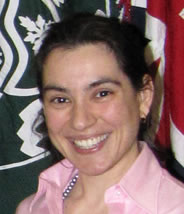Here are some images of the bulletin board outside the ES office with contributions from
the Chinese after school class.

April 19, 2016
by ISB Native Language Programs
0 comments
April 18, 2016
by ISB Native Language Programs
0 comments
April 8, 2016
by ISB Native Language Programs
0 comments
C9 Bilingual tools to enhance EAL/D students’ language development55 minutes
Mallika Das and Abby Saleh
In this presentation we will discuss two teacher-initiated bilingual reading programs conducted in school where 99% and 97% of the school population are from CALD (Culturally and Linguistically Diverse) backgrounds. These programs involve the reading of texts in multiple languages. Research suggests that ‘in early stages it [reading in the first language] can profoundly accelerate the development of reading ability in the second language.’-Krashen, S. (2004). Building on this research, we will discuss the ways parents and community members were engaged in the process. We will outline the processes and procedures used to establish and maintain this program and will share data that offers evidence of the success of this program and its impact on students’ English syllabus outcomes.
April 8, 2016
by ISB Native Language Programs
0 comments

Dr Androula Yiakoumetti is an applied linguist whose research focuses on regional and social variation within linguistic systems and, more specifically, on the implications of such variation for education. She is interested in sociolinguistic aspects of linguistic variation and works within the research fields of multidialectism and multilingualism, second-language acquisition and development, and language-teacher development.
Her publications span a variety of language issues including bidialectism, language attitudes, learning English as a foreign language, language policy and practice in an era of super-diversity, and language-teacher training.
She is the editor of Harnessing Linguistic Variation to Improve Education (2012, Peter Lang) and Multilingualism and Language in Education: Sociolinguistic and Pedagogical Perspectives from Commonwealth Countries (2015, Cambridge University Press).
Language in education deserves heightened attention in the increasingly linguistically-diverse classrooms that are typical of a modern world that is characterised by processes of globalisation, transnationalism and transmigration. These processes have inextricable linkages with language power relations. It is imperative then that we ask how language education can be optimised in settings where language power relations are based on economic, political or social factors rather than linguistic processes.
Research clearly demonstrates that incorporating linguistic diversity into education and utilising the entire linguistic repertoire of learners can lead to social, cultural, pedagogical, cognitive and linguistic advancement. In spite of this evidence, many educational contexts worldwide continue to promote the exclusive use of traditionally-dominant languages.
I draw on research carried out in various settings (including Australia, Canada, Cyprus, and the United States) which (1) highlights the valuable educational roles of learners’ mother tongues and (2) evidences the positive role that translanguaging practices can play in education. In doing so, I argue for the promotion of Indigenous languages, minority languages, Creoles and nonstandard varieties in formal education alongside those which are traditionally dominant. I emphasise the central significance of language educators, the importance of teacher training, and the need for creating educational programmes which are informed by the specific linguistic landscapes in which they are to be employed. I also emphasise the importance of language attitudes and the benefits derived when parents and other community members are involved in students’ language education.
In drawing together advice on the optimisation of language education in linguistically diverse settings, I conclude that both low-status and traditionally-prestigious varieties ought to be concurrently used for ideal educational outcomes. I therefore argue in favour of both multilingualism and multiculturalism while pointing out how timely a much desired paradigm shift in language education planning would be.
April 8, 2016
by ISB Native Language Programs
0 comments
My name is Agneta Bekassy de Bekas. I was born in Sweden, graduated there and went to University studying “Ancient Life” and “Art history”. Moved to Switzerland, married and started a fashion business, imported garments from Thailand. Since 2007 I have been living in Bangkok with husband and daughter. Today my daughter is 21 and studying in Rotterdam, Netherlands. I have been teaching complimentary Swedish a couple of years now. Usually I have classes at ISB, NIST,Pattana and KIS. This term there were not enough students at Pattana to teach a class. I am not an educated teacher, but I know my language and Sweden’s culture and traditions.
April 7, 2016
by ISB Native Language Programs
1 Comment
March 29, 2016
by ISB Native Language Programs
0 comments
March 25, 2016
by ISB Native Language Programs
0 comments
March 25, 2016
by ISB Native Language Programs
0 comments
March 23, 2016
by ISB Native Language Programs
0 comments
February 21st 2017
| Internationaler Tag der Muttersprache |
Día Internacional de la Lengua Materna
יום שפת האם הבינלאומי
اليوم العالمي للغة الأم
International Mother Language Day
국제 모국어의 날
On International Mother Language Day the UN’s Educational, Scientific and Cultural Organization (UNESCO) and UN agencies participate in events that promote linguistic and cultural diversity. They also encourage people to maintain their knowledge of their mother language while learning and using more than one language. Governments and non-governmental organizations may use the day to announce policies to encourage language learning and support.
In Bangladesh, February 21 is the anniversary of a pivotal day in the country’s history. People lay flowers at a Shaheed Minar (martyr’s monument). They also: purchase glass bangles for themselves or female relatives; eat a festive meal and organize parties; and award prizes or host literary competitions. It is a time to celebrate Bangladesh’s culture and the Bengali language.
The Linguapax Institute, in Barcelona, Spain, aims to preserve and promote linguistic diversity globally. The institute presents the Linguapax Prize on International Mother Language Day each year. The prize is for those who have made outstanding work in linguistic diversity or multilingual education.
(Retrieved March 23, 2016 from: https://www.timeanddate.com/holidays/un/international-mother-language-day